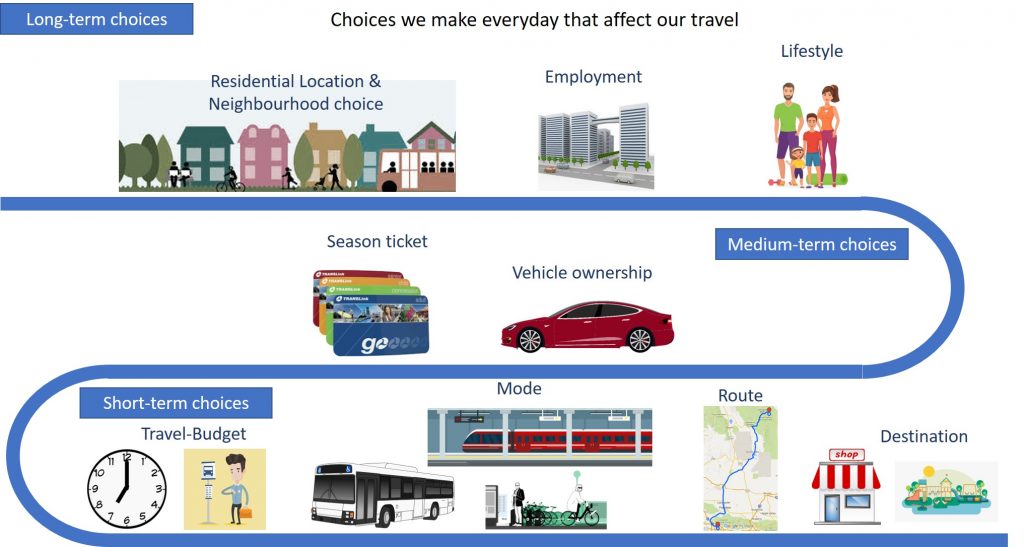Project dates: 07/01/2019 - Ongoing
Behavioural economics studies the impact of psychological factors on economic decisions and how these decisions deviate from those implied by classical economic theory. It merges the fields of economics and psychology to provide a better understanding of choice behaviour, which can then have implications for policy design.
People make long- and short-term choices around transport. This project uses insights from behavioural economics and traditional methods to better understand how people make those decisions. These insights can also help gain a better understanding of the conditions under which people make certain decisions, and what policies might best influence these decisions to achieve overarching policy goals (e.g. more people using public transport, lower emissions from vehicles, etc).
Our research team is assessing the varying behavioural and demographic factors that determine travel choices. From there, we will build on the Department of Transport’s in-house choice models by including additional variables and using alterative modelling techniques. By modelling commuter choice, we can build valuable insight into how small policy changes will impact behaviour in the short, medium and long term.
Funding / Grants
- Transport Academic Partnership
Chief Investigators
Team
Other Team Members
Partners

